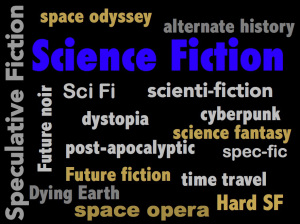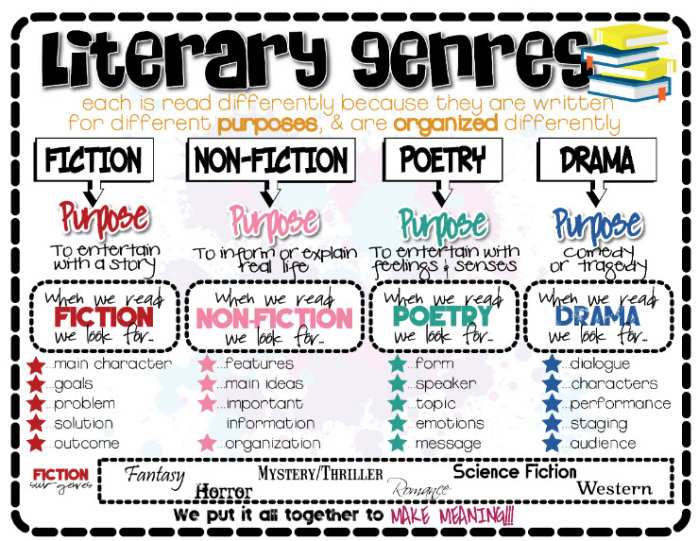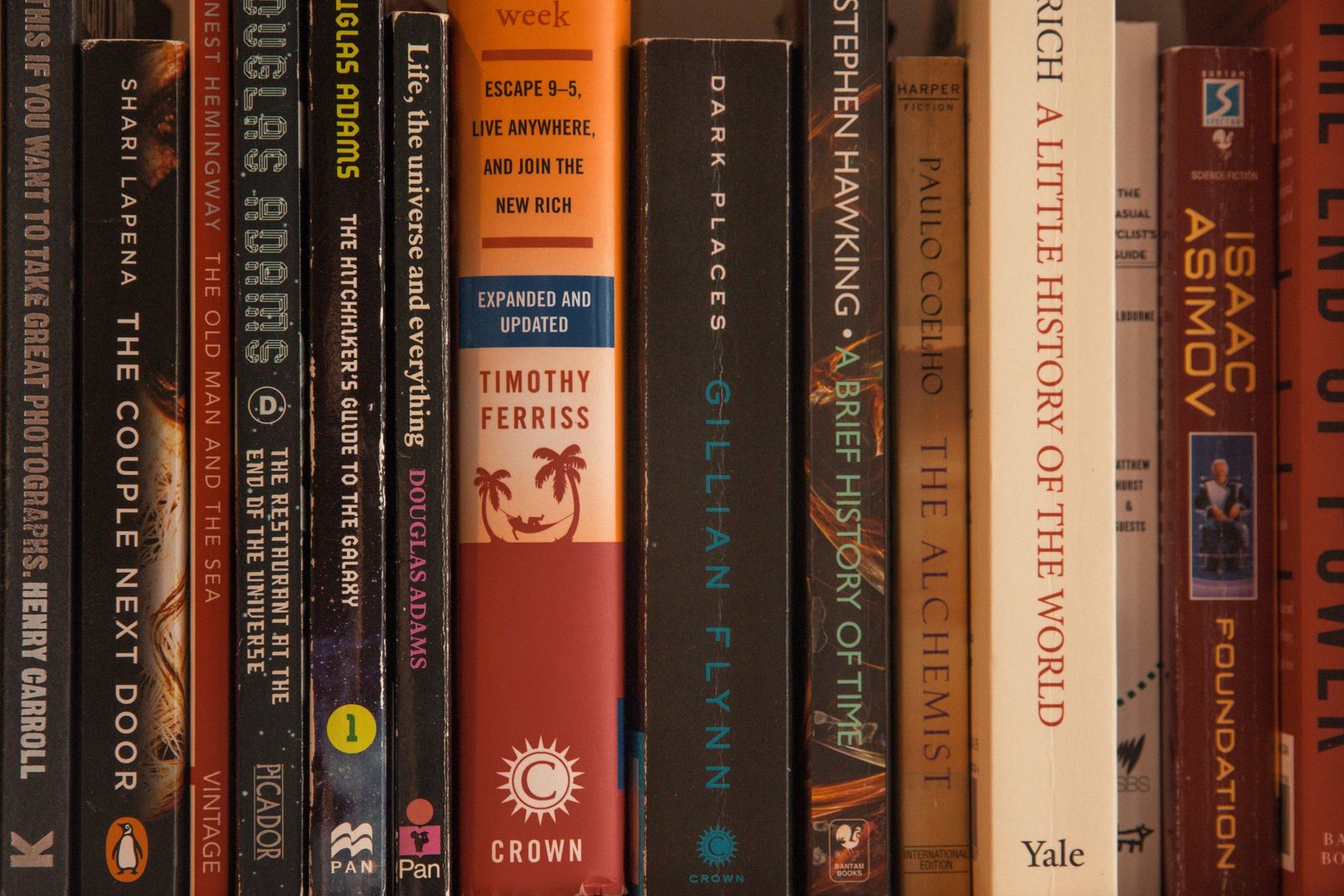The Most Popular Fiction Genres Explained

Science Fiction
Defining science fiction and its subgenres
Science fiction is a genre that explores imaginative and futuristic concepts, often based on scientific principles or advancements. It allows readers to contemplate the possibilities of what the future might hold. Within science fiction, there are various subgenres that focus on different aspects. Some popular subgenres include:
- Space opera: These stories center around adventure, often set in space, and involve epic battles and larger-than-life characters.
- Cyberpunk: This subgenre combines elements of science fiction and a dystopian society, with a focus on advanced technology and its impact on society.
- Hard science fiction: These stories emphasize scientific accuracy and detail, often focusing on plausible technological advancements.
- Time travel: This subgenre deals with the concept of traveling through time and the consequences of altering the past or future.
Famous science fiction authors and their works
Numerous talented authors have contributed to the science fiction genre. Some of the most well-known include:
- Jules Verne: Known as the “Father of Science Fiction,” Verne's works, such as “Twenty Thousand Leagues Under the Sea” and “Journey to the Center of the Earth,” laid the foundation for the genre.
- Isaac Asimov: Asimov is famous for his “Foundation” series and the “Robot” series, which explore themes of artificial intelligence, futuristic societies, and the ethics of technology.
- Philip K. Dick: Dick's works, including “Do Androids Dream of Electric Sheep?” (the basis for the movie Blade Runner) and “The Man in the High Castle,” delve into themes of identity, reality, and the consequences of advanced technology.
Exploring futuristic technology and concepts in science fiction
Science fiction allows authors to speculate on the advancements and impact of technology in the future. From interstellar travel to artificial intelligence, science fiction explores the possibilities and consequences of these ideas. It presents readers with thought-provoking scenarios that challenge societal norms, ethical dilemmas, and the potential benefits and dangers of these technologies. By immersing themselves in these stories, readers can contemplate how future advancements may shape humanity and the world we live in.

Mystery and Thriller
Understanding the elements of mystery and thriller genres
In the world of fiction, mystery and thriller genres have captivated readers for centuries. These genres combine suspense, intrigue, and anticipation to keep readers on the edge of their seats. Mystery novels focus on solving a puzzle or crime, while thriller novels aim to create a sense of excitement and tension.
Key elements of mystery and thriller genres include complex plots, plot twists, suspenseful pacing, and compelling characters. Readers are often left guessing until the very end, trying to piece together clues and predict the outcome. These genres offer readers an immersive and thrilling reading experience.
Renowned mystery and thriller authors and their notable books
Numerous talented authors have made their mark in the mystery and thriller genres. Agatha Christie, often referred to as the “Queen of Crime,” has written classics like “Murder on the Orient Express” and “And Then There Were None.” Other notable authors include Dan Brown, whose bestselling novels like “The Da Vinci Code” and “Angels & Demons” are filled with intriguing puzzles and religious conspiracies.
Uncovering secrets and solving crimes in mystery and thriller novels
One of the main attractions of mystery and thriller novels is the opportunity to unravel secrets and solve crimes alongside the characters. Whether it's a detective piecing together clues or an ordinary person stumbling upon a dark secret, readers are taken on a thrilling journey of discovery.
From cozy mysteries set in small towns to gripping psychological thrillers, these genres offer a wide range of subgenres and styles to cater to different readers' tastes. Whether you enjoy the intellectual challenge of solving a complex mystery or the adrenaline rush of a heart-pounding thriller, there's sure to be a book that will leave you eagerly flipping the pages.

Fantasy
Defining fantasy and its subgenres
Fantasy literature is a genre that encompasses imaginative and supernatural elements, often set in fictional worlds or featuring magic, mythical creatures, and extraordinary powers. It allows readers to escape reality and immerse themselves in enchanting realms and epic adventures. Within the fantasy genre, there are several subgenres, including high fantasy, urban fantasy, dark fantasy, and contemporary fantasy, each with its own unique characteristics and tropes.
Prominent fantasy authors and their renowned works
Several esteemed authors have made significant contributions to the realm of fantasy literature. J.R.R. Tolkien is one such name, renowned for his epic high fantasy series, “The Lord of the Rings” and “The Hobbit.” Other notable authors include George R.R. Martin with his gritty and complex “A Song of Ice and Fire” series (which inspired the popular TV show “Game of Thrones”), J.K. Rowling with her magical world of “Harry Potter,” and Terry Pratchett with his humorous and satirical Discworld series.
Venturing into magical realms and epic adventures in fantasy literature
Fantasy literature offers readers the opportunity to embark on extraordinary journeys filled with mythical creatures, brave heroes, and daunting quests. From joining Frodo Baggins on his quest to destroy the One Ring to accompanying Harry Potter in his battles against dark forces, fantasy literature invites readers to explore magical realms, encounter fascinating characters, and experience thrilling adventures. With its limitless possibilities and boundless imagination, fantasy literature continues to captivate readers of all ages.
In summary, fantasy literature takes readers on extraordinary journeys into enchanting realms and epic adventures, showcasing the limitless power of imagination and providing an escape from reality.

Romance
Exploring the different types of romance genres
Romance novels have captured the hearts of readers for centuries, offering a delightful escape into the world of love and desire. By exploring different subgenres, readers can discover the type of romance that resonates with them the most.
Some popular subgenres include:
-
Historical Romance: Set in the past, these stories whisk readers away to different time periods, usually featuring swoon-worthy heroes and independent heroines.
-
Contemporary Romance: Taking place in the present, these stories focus on modern relationships and explore the complexities of love in everyday life.
-
Paranormal Romance: Combining romance with elements of the supernatural, these stories feature vampires, werewolves, and other mythical creatures in love.
Celebrated romance authors and their beloved novels
Romance literature is blessed with talented authors who have created captivating stories that resonate with readers. Some celebrated romance authors include:
-
Jane Austen: Known for her wit and social commentary, Austen's novels like “Pride and Prejudice” and “Sense and Sensibility” continue to be cherished classics.
-
Nora Roberts: With over 200 romance novels to her name, Roberts is a prolific author who has mastered the art of creating compelling characters and engrossing plots.
-
Nicholas Sparks: Sparks is renowned for his emotionally charged love stories, such as “The Notebook” and “A Walk to Remember,” which have become beloved movies as well.
Delving into passionate relationships and heartfelt emotions in romance stories
Romance stories are often praised for their ability to evoke deep emotions and explore the complexities of human relationships. These novels delve into themes such as true love, second chances, and the power of connection. Whether it's the intense passion of a forbidden love or the slow burn of a long-lasting romance, these stories offer readers a chance to experience the power of love in all its forms.

Historical Fiction
Understanding the significance of historical fiction
Historical fiction is a captivating genre that brings the past to life through storytelling. It allows readers to immerse themselves in historical settings, events, and characters, providing a unique blend of education and entertainment. Historical fiction offers a deeper understanding of different eras, cultures, and societies, making it a valuable tool for learning history in an engaging way.
By incorporating accurate historical details into fictional narratives, authors strive to transport readers to another time and place. This genre helps us reimagine the past, experience the emotions of historical figures, and gain insights into the challenges they faced. It offers a bridge between reality and imagination, creating a rich tapestry of storytelling.
Notable historical fiction authors and their influential works
Several highly acclaimed authors have made significant contributions to the historical fiction genre. Some notable names include:
-
Philippa Gregory: Known for her Tudor Court series, Gregory brings to life the dramatic and intriguing world of British royalty.
-
Ken Follett: His masterpiece, “The Pillars of the Earth,” immerses readers in the world of medieval cathedral building.
-
Hilary Mantel: With her Booker Prize-winning novels, “Wolf Hall” and “Bring Up the Bodies,” Mantel offers a fresh perspective on Henry VIII's court and Thomas Cromwell's rise to power.
These authors and their influential works have not only entertained readers but also deepened our understanding of history. Their meticulous research and compelling storytelling make historical fiction an enduring and beloved genre.

Young Adult
Exploring the characteristics of young adult fiction
Young Adult (YA) fiction has exploded in popularity in recent years, attracting readers of all ages. This genre is typically targeted towards teenagers and young adults between the ages of 12 and 18, but many adults enjoy YA novels as well.
One of the defining characteristics of YA fiction is its focus on coming-of-age themes and the challenges faced by young protagonists as they navigate adolescence and discover their identities. YA novels often delve into issues such as love, friendship, self-discovery, and personal growth. They also tend to feature relatable characters and explore a wide range of genres such as romance, fantasy, dystopia, and science fiction.
Popular young adult authors and their bestselling novels
Many talented authors have made a name for themselves in the YA genre, captivating readers with their compelling stories. Here are a few popular YA authors and some of their bestselling novels:
-
John Green: Known for his poignant and thought-provoking stories, John Green has gained a substantial following. His bestselling novels include “The Fault in Our Stars” and “Paper Towns”.
-
Sarah J. Maas: Maas is a master of fantasy storytelling, captivating readers with her intricate world-building and strong female protagonists. Her popular series include “Throne of Glass” and “A Court of Thorns and Roses”.
-
Rainbow Rowell: Rowell's novels often explore themes of love and identity, resonating with readers of all ages. Her popular books include “Eleanor & Park” and “Fangirl”.
These authors, along with many others, have played a significant role in the popularity of YA fiction, offering readers engaging stories that explore the triumphs and challenges of growing up.

Horror
Defining horror and its subgenres
Horror fiction is a popular genre that aims to evoke intense fear, terror, and dread in its readers. It often explores supernatural elements, monsters, psychological terrors, and the macabre. Within the horror genre, there are various subgenres that cater to different reader preferences.
-
Supernatural horror: This subgenre focuses on supernatural elements like ghosts, demons, and otherworldly creatures. Examples include “The Exorcist” by William Peter Blatty and “The Shining” by Stephen King.
-
Psychological horror: This subgenre delves into the depths of the human mind, showcasing the fears and anxieties that lurk within. It often blurs the line between reality and imagination. Famous psychological horror novels include “The Silence of the Lambs” by Thomas Harris and “Gone Girl” by Gillian Flynn.
Renowned horror authors and their chilling tales
Several celebrated authors have made their mark in the horror genre, captivating readers with their terrifying tales. Here are a few notable authors and their iconic works:
-
Stephen King: Known as the “Master of Horror,” King has written numerous bestselling horror novels like “It,” “The Shining,” and “Pet Sematary.” His mastery lies in creating memorable characters and building suspenseful narratives.
-
H.P. Lovecraft: Lovecraft is revered for his cosmic horror, which explores the insignificance of humanity in the face of ancient and terrifying cosmic entities. His works include “The Call of Cthulhu” and “At the Mountains of Madness.”
-
Mary Shelley: Shelley's novel “Frankenstein” is a seminal work in horror fiction, exploring themes of creation, scientific ambition, and the consequences of playing god.
Whether you enjoy the supernatural, psychological, or other subgenres of horror, there are countless chilling tales waiting to send shivers down your spine. So, grab a book, dim the lights, and prepare yourself for a thrilling journey into the world of horror fiction.

Conclusion
In conclusion, understanding the importance of branding your business is crucial to standing out from the competition and becoming more recognizable to your target audience. By creating a strong and reliable brand identity, you can establish a unique position in the market and showcase your values and story. This differentiation is key to attracting customers and gaining their trust in a sea of similar businesses.
Investing in consistent branding efforts allows you to make your brand more memorable and familiar to customers. When they can easily identify your company through visual, auditory, and physical elements, it fosters trust and influences their buying decisions. Additionally, brand recognition can also impact how customers engage with your content, emails, and ads.
To summarize the branding benefits:
- Distinguishing your business from competitors by leveraging your unique values, story, and brand promise.
- Becoming more recognizable and memorable to customers by investing in consistent branding efforts.
- Influencing customer trust and engagement through brand recognition.
By focusing on these key aspects, you can effectively brand your business and establish a strong presence in the market. So start building your brand today and reap the rewards it can bring to your business.
Frequently Asked Questions
Q: What is branding?
A: Branding refers to the process of creating a unique identity for your business, including elements such as your logo, slogan, values, and story.
Q: Why is branding important?
A: Branding is important because it helps distinguish your business from competitors, makes your brand more recognizable and memorable, and influences customer trust and engagement.
Q: How can I make my brand more memorable?A: Consistent branding efforts, including using visual, auditory, and physical elements that are easily identifiable, can make your brand more memorable to customers.
Q: Can branding impact customer buying decisions?A: Yes, branding can influence customer buying decisions as familiarity and trust in a brand play a significant role in the decision-making process.
Q: What are some benefits of brand recognition?A: Brand recognition fosters trust, influences customer engagement, and makes your brand more memorable, leading to increased customer loyalty and repeat business.

